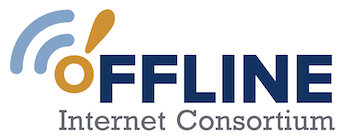
The following is an excerpt from the new OLI white paper, Beyond the Binary: The Power of Offline Internet, September 2024.
Darakht-e Danesh, denoting a “knowledge tree” in Farsi/Dari, aims to provide educational access to Afghans and learners worldwide.
Spearheaded by the Canadian Women for Women in Afghanistan (CW4WAfghan), a nonprofit organization committed to advancing gender-equitable education and enhancing human rights in Afghanistan, Darakht-e Danesh Academi embodies a profound dedication to knowledge dissemination in offline settings over its 25-year tenure.
Its multifaceted approach encompasses three distinct branches: the Darakht-e Danesh Library, an extensive repository of free online educational materials available in nine languages; the Darakht-e Danesh courses, offering self-paced learning opportunities in Farsi/Dari, Pashto, and English; and the Darakht-e Danesh Classroom.
Positioned at the forefront of offline internet innovation, Darakht-e Danesh Academi epitomizes the transformative potential of educational outreach, epitomizing a beacon of hope and enlightenment amidst the challenges of limited online access.
In confronting the challenges of limited educational resources and internet accessibility, Darakht-e Danesh Academi addressed critical gaps in Afghanistan’s educational landscape. A significant impediment stemmed from the dearth of locally produced materials for capacity building, with imported books from neighboring countries like Iran and Pakistan often failing to align with Afghanistan’s curriculum.
Moreover, existing content lacked certification alignment, hindering learners’ educational progression. Compounded by the widespread absence, instability, or prohibitively high costs of internet access across the nation, these challenges necessitated innovative solutions. Consequently, the organization pioneered the development of an offline digital library, strategically installed and supplemented with comprehensive training initiatives at 13 teacher training colleges nationwide.
In the aftermath of the Taliban’s control, the status of the digital libraries set up by Darakht-e Danesh Academi remains unclear. Despite this uncertainty, there’s reason to hope that these libraries are still operational. Their wide reach, ability to function offline, and the training they provided suggest they may still be serving their purpose.
While we lack definitive information, there’s optimism that these libraries continue to provide access to information despite the upheaval.
Darakht e Danesh worked with partners to localize children’s books from various sources into local languages, and create audiobooks, addressing accessibility barriers.
Prior to the Taliban’s assumption of power, these digital libraries were extended to 42 educational institutions across Afghanistan, emblematic of Darakht-e Danesh Academi’s commitment to equitable educational access amidst formidable obstacles.

